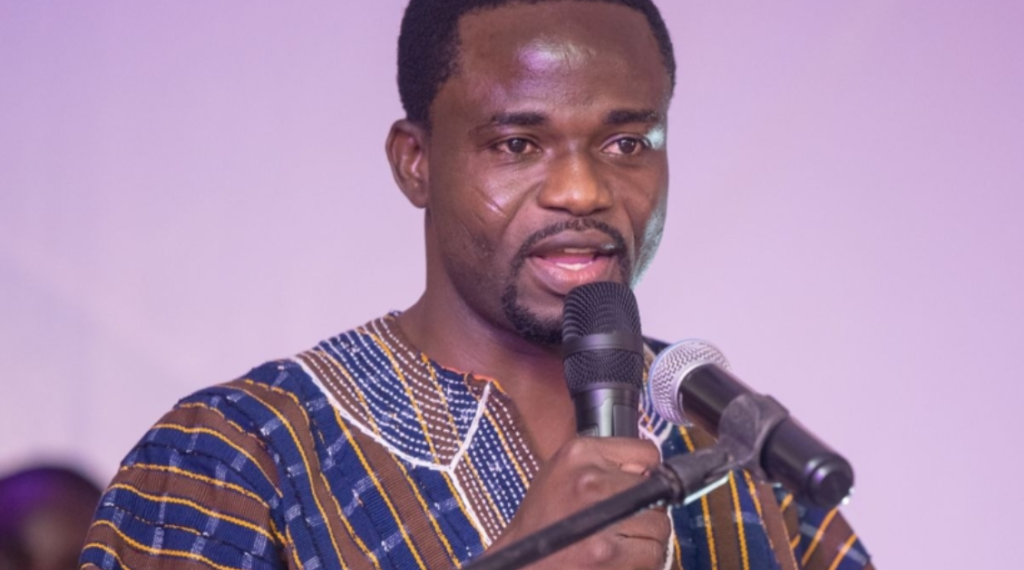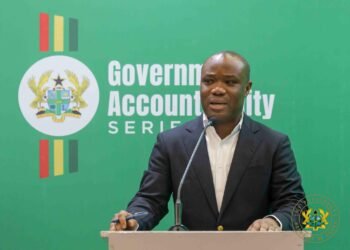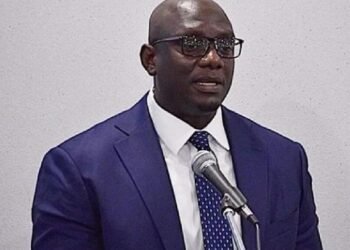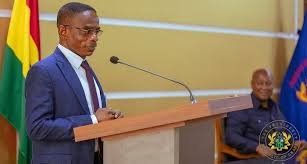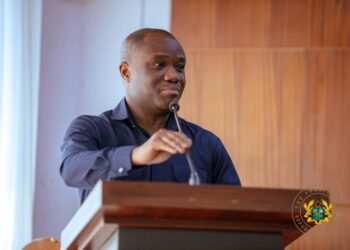Investigative journalist Manasseh Azure Awuni has thrown his weight behind the Ghana Tertiary Education Commission (GTEC) in its clash with Dr. Grace Ayensu-Danquah, the deputy minister for Health, over her claim to the title “Professor.”
Awuni maintained that GTEC is right to insist she drop the title, describing her insistence as misleading and damaging to the principles of academic integrity in Ghana.
According to Awuni, the issue is not a matter of interpretation but of factual accuracy. From the available evidence, he argued, Dr. Ayensu-Danquah is not entitled to call herself “a full professor” anywhere in the world.
He criticized her refusal to heed GTEC’s advice, noting that the commission had initially tried to persuade her quietly to stop using the title.
“On July 31, 2025, the Board Chairman of GTEC, Professor Mahama Dawiejua, met Dr. Grace Ayensu Danquah in an office at the Civil Aviation Training School to discuss the matter, over which GTEC had received petitions after her vetting. She reportedly defended her claim to the ‘Professor’ title and left the meeting without agreeing to drop it.”
Manasseh Azure Awuni
Awuni believes this defiance undermines both GTEC’s authority and Ghana’s broader academic standards.
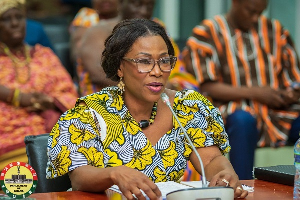
He argued that clinging to an unearned designation adds nothing to her credentials as a medical doctor, Member of Parliament for Essikado-Ketan, and deputy minister.
Instead, it risks discrediting her achievements, undermining her credibility, and gradually eroding the broader foundation of public trust.
Letters Contradict Dr. Ayensu’s Claim
Meanwhile, the controversy began during her vetting, when Minority Leader Alexander Afenyo-Markin confronted her about the title she uses, particularly on social media, where she presents herself as Prof. Dr. Grace Ayensu-Danquah.
She responded by asserting that she was “a full Professor of Surgery at the University of Utah and a Professor of Global Surgery.” She further highlighted her research output, describing her publications as “too numerous to count.”
However, a review of her CV submitted to Parliament revealed only thirteen listed works, including her master’s thesis. Most of these were oral presentations, with just a few published pieces.
Nowhere did the document suggest a larger, unlisted body of academic work. For Awuni, this renders her claim of publications “too numerous to count” questionable.

More crucially, documents from the University of Utah dated August 7, 2025, state otherwise. In a letter signed by W. Bradford Rockwell, Vice Chair for Academic Affairs in the Department of Surgery, Dr. Ayensu-Danquah is identified as an “adjunct assistant professor,” a role she has held since 2018.
According to Manasseh Awuni, this rank, equivalent to that of a part-time lecturer, is nowhere near the rank of “full professor.”
In a separate letter dated August 8, 2025, her lawyers wrote to GTEC, describing her as “an assistant professor of surgery” but conspicuously omitting the word “adjunct.”
Even more telling, throughout that document, she is referred to only as “Dr. Grace Ayensu-Danquah,” with no mention of the professor title. This omission, Awuni suggested, undermines her own claim to the rank of full professor.
Debate On Academic Integrity, GTEC Commended
For Awuni, the heart of the matter is academic integrity. He emphasizes that adjunct assistant professors cannot be equated to full professors in Ghana, the Commonwealth, or the United States.
Academic progression requires climbing the ladder through assistant and associate professorships before one can be awarded the rank of full professor.
In his view, describing herself otherwise is misleading and reflects poorly on Ghana’s standards for academic recognition.

He described the case as symptomatic of a troubling culture where some individuals misrepresent qualifications in pursuit of status.
Awuni recalled previous instances in Ghana where public officials or professionals falsely claimed titles, embarrassed institutions, and misled the public.
“GTEC must be commended for stepping up to rid our society of claimants of false titles. It may not be the institution’s main function, but we must not belittle their efforts. Recently, the government was embarrassed by the NHIS board’s appointment of a lady who had falsely claimed on TV to be a medical doctor.”
Manasseh Azure Awuni
He also cited his 2021 investigation into a fake doctor in Accra who exploited patients under fraudulent pretenses.
False Titles Damage Society
Accordingly, Manasseh Awuni insisted that the use of unearned titles reflects insecurity and low self-esteem.
He lamented that while academics in Ghana are often derided for carrying “useless titles,” many who criticize them are also eager to adopt prestigious designations they have not earned. This contradiction, he argues, only fosters confusion in society.
“If people feel they are inadequate without academic titles, they should earn them legitimately. Fraudulently appropriating an unearned title…must be discouraged.”
Manasseh Azure Awuni

He further cautioned that the fraudulent adoption of the professor title not only misleads the public but also weakens confidence in Ghana’s academic and governance institutions.
Awuni concluded that GTEC deserves commendation for standing firm in this case, even though policing fraudulent academic claims is not its primary role.
By confronting the issue, the commission is helping to protect the credibility of Ghana’s education system and prevent the erosion of standards.
As he put it, clinging to a title that has not been earned brings no honor to the individual but instead harms the very society they claim to serve.
READ ALSO: MOG Beatz Accuses Shatta Wale of Stealing His Intellectual Property

